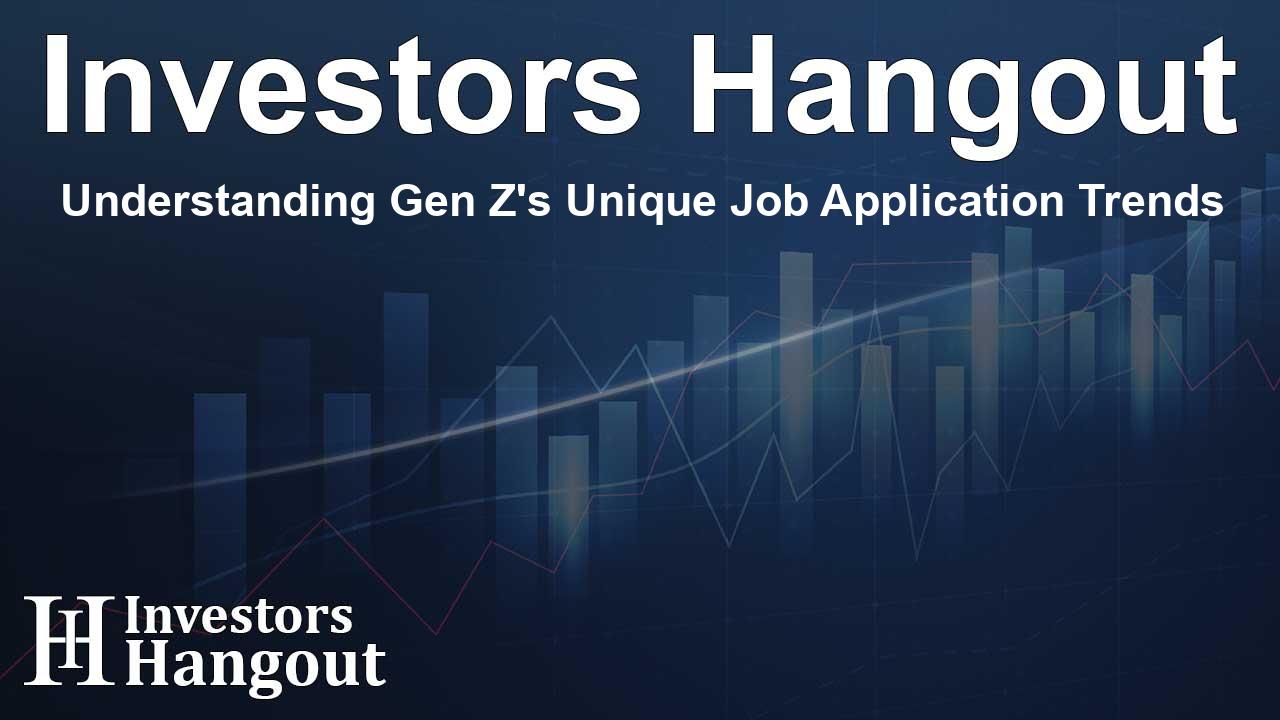Understanding Gen Z's Unique Job Application Trends

The Evolution of Job Applications in the Era of Gen Z
Recruiters frequently voice frustrations about the challenges of navigating the unique job application approaches of Gen Z. This generation is often characterized as being quite different from those that came before it, with a distinct style and mindset that influences their job search strategies.
For instance, Amy Gastman, the owner of a plant-based bakery in London, recently advertised openings for a baking assistant via social media. After receiving a flood of applications, she took to TikTok to express her bewilderment at the unconventional résumés and cover letters she encountered. These job seekers certainly left a lasting impression on her, although not all of it was positive.
Unconventional Applications Spark Conversations
Three days after posting her job offer, Gastman shared her surprise over the bizarre responses. One applicant noted that she was having a "brat girl summer." Such phrases raised eyebrows, leaving Gastman and her audience questioning the professionalism expected in job applications.
Another applicant labeled herself as a “Harry Styles enthusiast” with a unique ability to acquire tickets to sold-out concerts. While enthusiasm is commendable, these quirks raised concerns about the candidates’ suitability for a professional environment.
The Challenges Faced by Employers
Beyond the odd phrasing, some applications lacked fundamental elements, such as proper capitalization or punctuation, and even included admissions of insufficient baking skills. Applicants frequently used emojis to sign off, further highlighting a disconnect in expectations between generations.
Some of Gastman’s social media followers expressed skepticism regarding the authenticity of these applications. To address this, she later released follow-up videos sharing screenshots of the applications, demonstrating that she was indeed encountering unusual submissions.
In response to the applications, Gastman emphasized the importance of professionalism in the job-hiring process. She articulated the necessity for applicants to convince her of their worthiness for the position, especially as she would be investing her business funds into their employment.
Gen Z and Unwritten Workplace Rules
The ongoing dialogue about the unwritten rules of the workplace is not new; each generation tends to criticize the succeeding one. Gen Z has found its own ways to innovate, which sometimes frustrates traditional recruiters. For instance, they have been known to reject lengthy skills assessments and make demands that seem unrealistic by conventional standards.
Add to that the reports of Gen Z candidates ghosting their potential employers, sometimes failing to show up for even their first-day orientation. Such behavior illustrates a shift in expectations in the hiring realm, where both parties must navigate the nuances of workplace interactions.
Adapting to a New Workplace Landscape
Employers, too, are realizing their role in shaping hiring experiences. Many have transitioned from traditional hiring practices to more accommodating approaches. Yet, while hiring managers expect recent graduates to be competent right out of college, employers often neglect to provide adequate training. This gap has led to a significant portion of Gen Z employees leaving jobs within just a few months.
At the same time, there's been research showing that the job market's treatment of Gen Z workers contributes to their unique application behavior. Many young applicants feel disheartened, often hesitating to invest effort into the job application process, as they perceive a lack of seriousness from recruiters towards their capabilities.
The Path Forward for Gen Z and Employers
Moving forward, building a mutual understanding between Gen Z applicants and recruiters will be crucial. Enhancing communication and clarifying expectations on both sides might lead to a more harmonious and productive work environment. As Gastman indicated, establishing professionalism in applications is a hopeful step to encourage a positive shift in this generational workplace dynamic.
Frequently Asked Questions
What can employers do to attract Gen Z applicants?
Employers can revise their hiring processes to be more accommodating and engaging, clearly communicating expectations while fostering a welcoming environment.
How important is professionalism in job applications?
Professionalism in job applications is critical as it sets the tone for the recruiter’s perception of the candidate’s seriousness and suitability for the role.
What are some common mistakes Gen Z makes in applications?
Common mistakes include using informal language, neglecting basic grammar and punctuation, and failing to showcase relevant skills or experiences for the role.
How can Gen Z adapt to traditional workplace expectations?
Gen Z applicants can benefit from seeking mentorship and understanding the nuances of professional communication while balancing their unique identities.
What roles do social media play in job applications today?
Social media platforms have become crucial for job seekers to market themselves effectively, yet they should also reflect professionalism and relevancy to the desired job.
About Investors Hangout
Investors Hangout is a leading online stock forum for financial discussion and learning, offering a wide range of free tools and resources. It draws in traders of all levels, who exchange market knowledge, investigate trading tactics, and keep an eye on industry developments in real time. Featuring financial articles, stock message boards, quotes, charts, company profiles, and live news updates. Through cooperative learning and a wealth of informational resources, it helps users from novices creating their first portfolios to experts honing their techniques. Join Investors Hangout today: https://investorshangout.com/
Disclaimer: The content of this article is solely for general informational purposes only; it does not represent legal, financial, or investment advice. Investors Hangout does not offer financial advice; the author is not a licensed financial advisor. Consult a qualified advisor before making any financial or investment decisions based on this article. The author's interpretation of publicly available data shapes the opinions presented here; as a result, they should not be taken as advice to purchase, sell, or hold any securities mentioned or any other investments. The author does not guarantee the accuracy, completeness, or timeliness of any material, providing it "as is." Information and market conditions may change; past performance is not indicative of future outcomes. If any of the material offered here is inaccurate, please contact us for corrections.